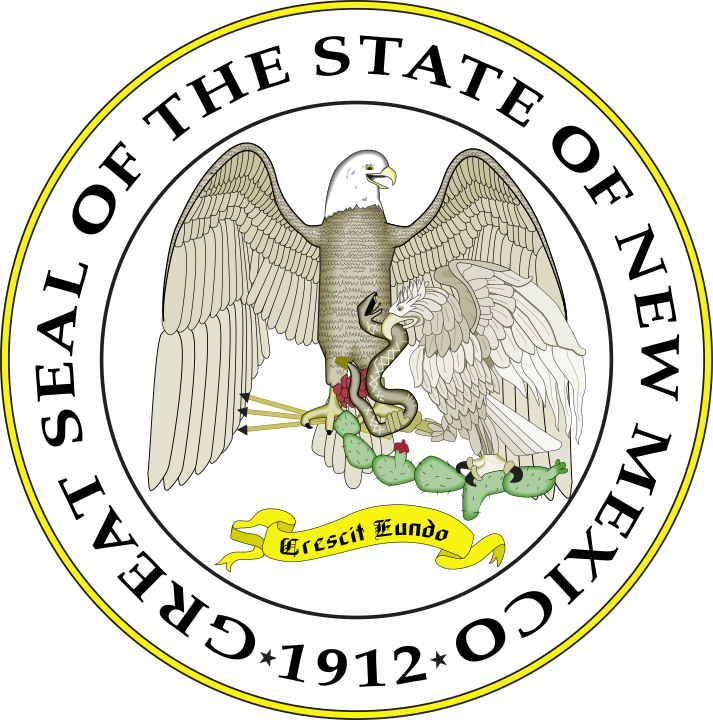 At 9:30 p.m. on a recent work day, I called a reporter who had just e-mailed me, asking for comment on the latest developments with the New Mexico science standards. “Don’t you ever sleep?” he joked. I chuckled. Ten hours later, at 7:30 a.m. the next day, a different reporter called me, asking for comment on the same developments, and I happily, if a bit blearily, discussed the situation with him. I say this not to brag of my work ethic—my secret, I confess, is coffee—but to illustrate a benefit of your support of NCSE.
At 9:30 p.m. on a recent work day, I called a reporter who had just e-mailed me, asking for comment on the latest developments with the New Mexico science standards. “Don’t you ever sleep?” he joked. I chuckled. Ten hours later, at 7:30 a.m. the next day, a different reporter called me, asking for comment on the same developments, and I happily, if a bit blearily, discussed the situation with him. I say this not to brag of my work ethic—my secret, I confess, is coffee—but to illustrate a benefit of your support of NCSE.
There simply isn’t any organization out there that rivals NCSE in monitoring the all-too-frequent attempts to compromise the integrity of science education in the United States. So when the media needs to understand the details of such attempts—the background, the players, the implications—they come to NCSE. The benefit is obvious: when the press coverage of attacks on science education is more accurate and complete, the public’s understanding is more accurate and complete—and that translates into action.
Take New Mexico, for example. As soon as NCSE was aware that the proposed state science standards were edited to weaken the treatment of evolution, climate change, and the age of the earth, we swung into action, preparing a quick explanation of the scientific and pedagogical problems with the revisions, organizing a coalition of activists within New Mexico, and—crucially—identifying journalists in the state who would need to be alerted about the problem and informed about the underlying issues.
Not everything goes as planned, of course. I was still trying to get in touch with a reporter at one of the state’s newspapers, who I thought was in a good position to break the story, when I was informed, via the coalition of activists that NCSE had organized, that a concerned New Mexican had informed a reporter at Mother Jones, who was about to break the story. No worries: I managed to get in touch with Andy Kroll before he filed his copy, so NCSE set its stamp on the very first coverage on the New Mexico standards to appear.
Since then I’ve lost track of how many reporters I’ve talked or e-mailed with about the New Mexico science standards in the last two months, but perhaps only half of the time have I or NCSE been mentioned in the resulting story. That’s fine. The point is not necessarily to get NCSE’s name in the headlines, although that’s always nice. The point is to alert the public, via the media, of the urgent need—here, to oppose the misguided revisions that would have compromised the scientific accuracy of New Mexico’s science standards.
And, again, such alerts translate into action. New Mexico abounds in people who are concerned about science education, whether because they’re science educators themselves, scientists, environmentalists, businesspeople, faith leaders or freethinkers, parents, or all of the above. And lots of them, when they saw coverage of what was proposed for their state’s science standards, decided to take action. That often included, I’m happy to say, getting in touch with NCSE, which helped them join the coalition of activists.
Thanks to NCSE’s early and unrelenting efforts in September and October 2017, there was a virtually unbroken stream of criticism of the Public Education Department, which finally, in late October, announced that instead of the flawed standards originally proposed, it would be adopting the Next Generation Science Standards in their entirety, with the addition of six New Mexico-specific standards, and—crucially—with their standards on evolution, climate change, and the age of the earth complete and unmolested. It was a decisive victory.
Now, none of the activities that NCSE was involved in with respect to New Mexico was all that extraordinary, considered individually. It’s not rocket surgery to compare two sets of science standards and note the divergences, or to identify education reporters at the largest newspapers in a given state, or to recruit scientists to speak about evolution and geochronology at a public rally, or to keep people informed of developments by e-mail, or (for that matter) to be by the phone late one day and early the next.
But considered collectively? It takes experience and organization to ensure that all of these tasks are appropriately coordinated and consistently accomplished. So if you want to be sure that when science education is under attack in your state, or your town, or your school, there’s someone ready to help, you should support NCSE. And remember: a portion—albeit a too small portion, if you ask me—of each donation pays for the office’s supply of coffee, allowing us to be hard at work, day and night if necessary.

